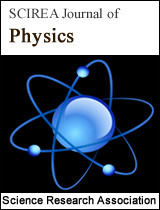Using the Newton’s Theory of Gravity to Calculate the Deflection of Light in the Solar System and the Orbital Poles of Light’s Motion of General Relativity
DOI: 10.54647/physics14417 96 Downloads 16016 Views
Author(s)
Abstract
In this paper, a standard method is provided to calculate the gravitational deflection of light in the solar system by using the Newtonian theory of gravity. The equation of light’s motion in general relativity is compared with that of the Newton's theory of gravity. It is proved that a constant term is missing in the motion equation of general relativity. This constant term is critical to the orbital shape of light’s motion in gravity field and causes serious problems so that it can not be correct. The orbital poles of light’s motion of general relativity is also calculated. According to the theory of algebraic equation, the orbital poles are determined by a cubic equation of one variable. The calculation of general relativity assumed that light from stars in outer space passed through the solar surface, which was equivalent to assume that the solar radius was a root of the cubic equation. However, it is strictly proved that the solar radius can not be the pole of motion equation of general relativity. The orbital poles of light are located in the interior of the sun which are not far from the center of the sun, so all of lights from stars in outer space would enter the solar interior and disappear. It is impossible for the light to be seen by the observers on the earth surface, but this is not the case. The reason is just that the motion equation of motion in general relativity is missing a constant term. It means that the Einstein's prediction that light’s deflection angle was 1.75” in the solar gravitational field can not be correct and general relativity can not hold.
Keywords
General relativity, Newtonian theory of gravity, Gravitational deflection of light, Cubic equations of one variable, Hyperbolic orbit, Orbital poles of light’s motion.
Cite this paper
Mei Xiaochun,
Using the Newton’s Theory of Gravity to Calculate the Deflection of Light in the Solar System and the Orbital Poles of Light’s Motion of General Relativity
, SCIREA Journal of Physics.
Volume 7, Issue 1, February 2022 | PP. 20-40.
10.54647/physics14417
References
| [ 1 ] | Johann Georg von Soldner, ber die Ablenkung eines Lichtstrals von seiner geradlinigen Bewegung , Berliner Astronomisches Jahrbuch, 1801, 161-172 . |
| [ 2 ] | F. W. Dyson, A. S. Eddington, C. Davidson, A Determination o f the Deflection o f Light by the Sun’s Gravitational Field from Observations made at the Total Eclipse of May 29, 1919, https://royalsocietypublishing.org/doi/10.1098/rsta.1920.00093 |
| [ 3 ] | Burton F. Jones,Gravitational deflection of light: solar eclipse of 30 June 1973 II. Plate Reductions, The Astronomical Journal, June, 1976, Vol. 81, No. 6. |
| [ 4 ] | E. B. Fomalont, R. A. Sramek, The Astrophysical Journal, 1975 August 1, 199:749-755 . |
| [ 5 ] | Mei Xiaochun, The Precise Calculations of the Constant Terms in the Equations of Motions of Planetsand light of General Relativity, Physics Essays,2021, 34 (2), p.183 ~ 192. https://Physicsessays.org/browse-journal-2/product/1861-9-mei-xiaochun-the-precise-calculations-of-the-constant-terms.html. |
| [ 6 ] | Mei Xiaochu, Huang Zhixun, The Experiments of Light’s Gravity Deflection of General Relativity were invalid, International Astronomy and Astrophysics Research Journal,2021, 3(3): 7-26. |
| [ 7 ] | Zhou Yanbai, Theoretical Mechanics, Jiangsu Science Press, 1961, p. 117. |
| [ 8 ] | Department of Mathematics, China Institute of Mining and Technology, Mathematics Handbook,Science Press,1989, p. 9, 50. |
| [ 9 ] | Feng Linbao, Liu Xuecheng, General Relativity, Jilin Science and Technology Press, 1995, p. 112. |
| [ 10 ] | S. Weinberg, Theory of Gravity and Cosmology, Science Press, 1984, p. 230. |

